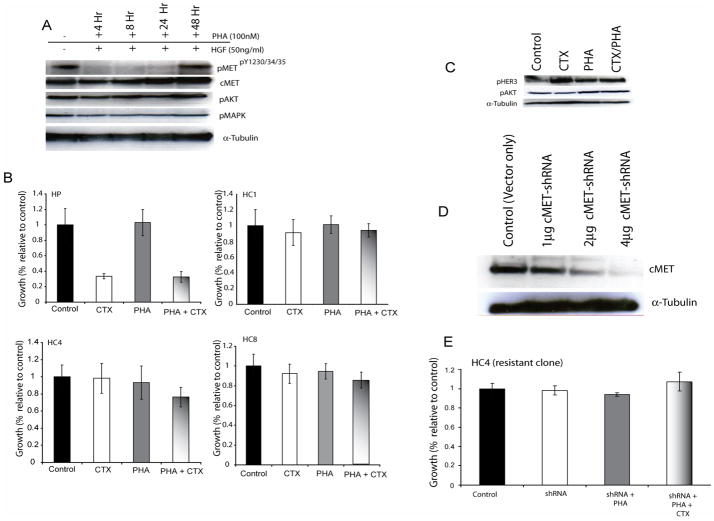Figure 6. Inhibition of cMET activity does not re-sensitize cetuximab-resistant cells to cetuximab.
A: PHA665752 inhibits cMET activity without affecting Akt or MAPK signaling. Cetuximab-resistant clone HC4 was treated with PHA665752 for 4, 8, 24 or 48 hour. Cells were then stimulated with HGF for 45 minutes. Western blot shows inhibition of cMET activity up to 24 hours when treated with PHA665752.
B: PHA665752 alone or in combination with cetuximab does not inhibit growth of cetuximab- resistant cells. Growth was measured at 72 hours after drug treatment using the growth proliferation assay as described in the experimental procedures and plotted as a percentage of growth relative to the untreated control cells. Treatment groups were cetuximab (CTX), PHA665752 (PHA) or the combination of the two drugs. HP; cetuximab-sensitive parental line, HC; cetuximab-resistant clones. Data points are represented as mean ±SEM (n=3).
C: Western blotting of cetuximab-resistant clone (HC4) cells after treatment with cetuximab, PHA665752 or the combination. Cetuximab-resistant clone HC4 was treated with cetuximab (100nM), PHA665752 (100nM) or the combination. 24 hours later protein was collected and fractionated by SDS-PAGE and immunoblotted for the indicated proteins.
D: Western blotting of cetuximab-resistant clone (HC4) cells after transient transfection with cMET shRNA vectors. Control is empty vector control. 1, 2, and 4 micrograms of vector were transfected. Cells were collected 48 hours after treatment. 48 hours after transfection protein was collected and fractionated by SDS-PAGE and immunoblotted for the indicated proteins.
E: Loss of cMET does not affect growth of cetuximab-resistant cells (HC4). Cells were transfected with cMET shRNA vectors followed by treatment with vehicle (shRNA only), PHA665752 (shRNA+PHA group) or PHA665752 or cetuximab (shRNA+PHA+CTX group). Growth was measured at 72 hours after treatment using the growth proliferation assay as described in the experimental procedures and plotted as a percentage of growth relative to the untreated control cells. Data points are represented as mean ±SEM (n=6).

